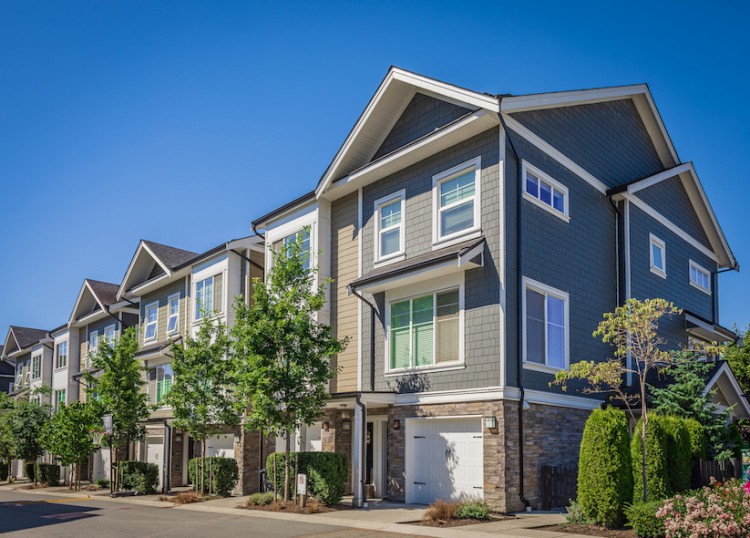Takeaways:
- After the BC Foreign Buyers Tax was introduced in August 2016, house prices fell six per cent more in neighbourhoods that had been heavier on foreign buyers than in other neighbourhoods.
- After the tax, the percentage of foreign buyers dropped from 13.2 per cent to 1.7 per cent in just three months.
- The price of multifamily homes didn’t decline in the same way, even in neighbourhoods that were heavier in foreign buyers.
- The study is the first of its kind to use exact numbers of foreign buyers.
- The price difference wasn’t large enough to solve Vancouver’s affordability issues, but the tax did lead to lower home prices in some neighbourhoods.
When the BC Foreign Buyers Tax was first introduced in August 2016, it whipped up a firestorm of controversy. For decades, home prices had been skyrocketing in destination cities from Hong Kong to San Francisco and from Melbourne to Vancouver, far outpacing local incomes. Many blamed foreign buyers for snapping up properties as lucrative investments, and in the process inflating the market; others argued such claims, not to mention the tax itself, were racist or xenophobic, and even challenged the law in court.
So did the BC Foreign Buyers Tax actually make housing more affordable? A new study from the UBC Sauder School of Business shows that, following the introduction of the 15 per cent tax, house prices fell significantly more in neighbourhoods that were heavier on foreign buyers.
For the study, researchers examined real estate transactions in the six weeks leading up to the announcement of the tax — when the B.C. government began requiring purchasers to disclose their nationality — and the three months following.
What they found was that, in neighbourhoods with above-median concentrations of foreign buyers, house prices declined by 6 per cent more than in neighbourhoods with below-median levels of foreign buyers. In other words, in neighbourhoods that had more foreign buyers, home prices noticeably declined.
What’s more, the percentage of foreign buyers dropped precipitously, from 13.2 per cent of single-family transactions in the six weeks before the announcement of the tax to just 1.7 per cent in the three months after. That number was even higher for single-family homes, where 30 per cent of the residential building permits in Vancouver involved a foreign buyer in the weeks leading up to the tax.
“The volume effect is very, very large. You get a real drop in transactions — not only in terms of foreign buyer transactions, but transactions overall. And that’s consistent with other research in this area: you get relatively small effects on prices, but very large effects on transactions,” says study co-author and UBC Sauder Associate Professor Tsur Somerville (he, him, his). (The reason the decline doesn’t affect prices, he adds, is that people don’t have to sell in a down market; instead they can wait it out).
Because all the buyers were in the same Lower Mainland market, and the window of time was limited, the change in the foreign buyer neighbourhoods was almost certainly the result of the tax. “It gets complicated when you look at housing markets, because there is no treatment group and control group,” says Professor Somerville, explaining the study’s “difference in differences” methodology. “Everybody is getting the treatment, but the treatment is likely to have more of an effect on areas that were foreign-buyer targeted than those that were not. Then we looked at the relative change.”
Interestingly, the cost of multifamily homes didn’t decline in the same way, even in the neighbourhoods that were heavier in foreign buyers. There’s a far greater supply of condos and townhomes than single-family homes in the Lower Mainland, says Professor Somerville, so they’re less likely to be as strongly affected by foreign demand — or the lack thereof. Also, if foreign buyers buy presale condos, they don’t have to pay the tax until they complete the sale — often years later — or they can “assign” the contract to another buyer before completion.
“If they’re in the speculation game, they could buy a presale and then assign it, and then they would never pay the tax. Or if the price goes up a lot, they might say ‘I don’t mind paying the tax’ because it would be on the original price — not the current value of the unit,” explains Professor Somerville, who co-authored the study with SFU Beedie School of Business Andrey Pavlov and Jake Wetzel of Stata Analytics. “So there are many ways that might have played out.”
Many other jurisdictions including Australia, New Zealand, Hong Kong and Singapore have introduced levies on foreign buyers.
Other studies have examined the effect of foreign buyers on house prices, but the UBC Sauder study is the first to use exact numbers of foreign buyers and entities in the transactions. (Others have relied on indirect measures such as population data or the surnames of purchasers).
Professor Somerville says that while the price difference wasn’t large enough to solve Vancouver’s affordability issues, the tax — which was raised to 20 per cent in 2018 — did lead to lower home prices in some neighbourhoods. The impact is likely even greater than the numbers show, he adds, because non-foreign buyers may have started snapping up properties in the foreign buyer-heavy neighbourhoods, which would have moderated the price decline.
At bottom, he says, the findings show there aren’t simple solutions to housing affordability that don’t impose costs on everyone. “You can’t say, ‘Let's just ban these people and that'll solve our problems without disrupting everything,'” he says. “Complicated problems don't have simple solutions — or the solutions may be simple, but they don’t actually change things.”

